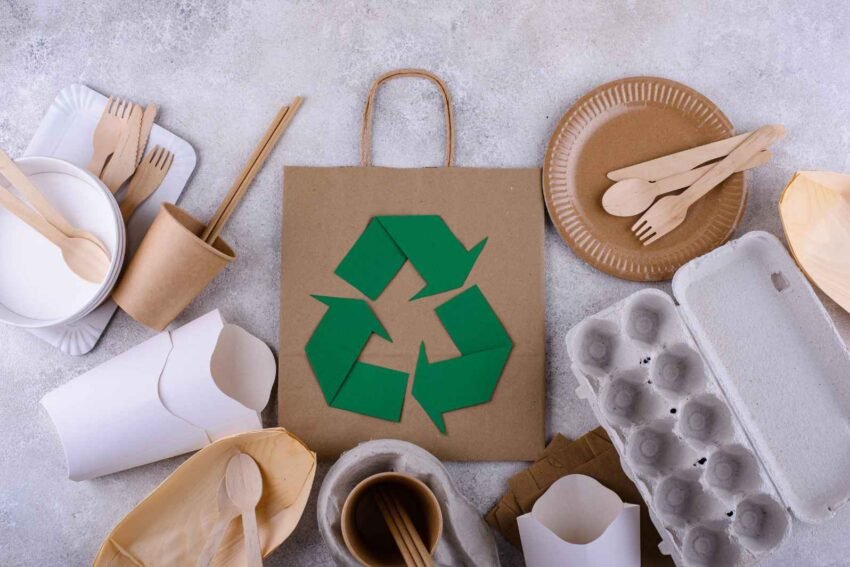Eco-life is not just a trend, it’s the current necessity. With every little step we take to living more sustainable we are saving the environment for our children. The great news is that living a green life isn’t hard. With a handful of mindful decisions, each household can do a lot.
Why Choose Eco-Friendly Living?
The world around us is being squeezed. Overcoming of pollution, waste and climate change are in fact legitimate issues. We can help unharmed nature by living sustainably.Handled! Green living is also cost-effective, healthy and makes the world cleaner.
Easy Actions for the Home and Family
1. Reduce, Reuse, Recycle
It all starts with the 3Rs. Buy less, reuse what you have rather than tossing it and recycle whenever possible. For instance, take cloth bags shopping with you and use glass containers rather than plastic ones.
2. Save Water
Water is valuable and we need to use it wisely. Seal dribbling taps, gather rainwater and make use of water-saving gadgets. Little things like turning off the tap while cleaning your teeth can save hundreds, or even thousands of litres of water a day.
3. Conserve Energy
The production of electricity frequently causes environmental damage. Energy-efficient appliances and switching to LED light bulbs can also reduce energy usage, as well as turning off electronics you aren’t using. If it is, consider solar panels for clean and renewable energy.
4. Choose Eco-Friendly Products
A slew of household products contain toxic chemicals. Instead, opt for natural cleaning products, organic food and eco-friendly personal care items. These are safer for your family and the planet.
5. Reduce Plastic Use
Plastic garbage is one of the greatest threats to nature. “Are there trash cans allowed?” he asks.) Say no to single-use plastic, the bottles and the bags, except at airport security. Opt for reusable options, metal bottles or bamboo toothbrushes and jute bags.
6. Grow Your Own Food
For that it doesn’t take much, a small garden or some potted plants on your balcony can contribute. When we grow herbs, veggies or fruit at home, that’s less chemical-ridden product bought off the market. It also saves on transportation costs and reduces carbon footprint.
7. Sustainable Travel
Use public transport, cycle or walk where possible. When you can, use trains instead of flights for longer distances. Carpooling and electric cars are added possibilities for green transportation.
8. Manage Waste Smartly
Segregate wet and dry waste. Homemade compost kitchen waste can be turned into organic fertiliser in your home. This in turn minimizes the amount of waste that goes to landfills and helps plants grow more effectively.
9. Support Local and Ethical Brands
Purchasing from farmers and small businesses locally eliminates transport pollution and strengthens the community. Be sure to check if brands are eco-conscious and ethical before buying.
10. Teach and Inspire Others
There is strength in sustainable living in numbers. If you have kids, educate them about eco-friendly habits and encourage friends and neighbors to use some of your greener practices.
Benefits of Sustainable Living
- Saves Money : The less water, electricity and plastic while saving money on your monthly bill.
- Better Health: The body is healthy and kept off harmful chemicals thanks to organic food and natural products.
- Cleaner Environments: Less garbage means a cleaner home and neighborhood.
- Bright Future: A greener, more sustainable future is just around the corner thanks to Arm & Hammer for baking!
FAQs:
Q1. Is eco-friendly living expensive?
No, it is frequently a money saver in the long run. For instance, an environmentally friendly in a magazine magazineissue store would have seen eco-friendly products in magazines issue shop is arguab costly than single- iceless machine drinks packages charged climate-damaging use items.
Q2. How can I start to live sustainably at home?
Start with minor changes – such as using cloth bags, conserving electricity and consuming less plastic. As you go along, you can introduce larger changes such as solar power or composting.
Q3. Is there anything one household can do to make an impact?
Yes. When one family goes through a transformation, it serves as the catalyst for others. All these things make an impact when done together little by little.
Q4. What is the simplest green habit to incorporate?
Carry all bags and bottles are one of the simplest habits with a big impact.
Q5. Will eco-friendly living make me healthier?
Yes, healthier food, fewer chemicals and living in a cleaner environment are good for our health.
